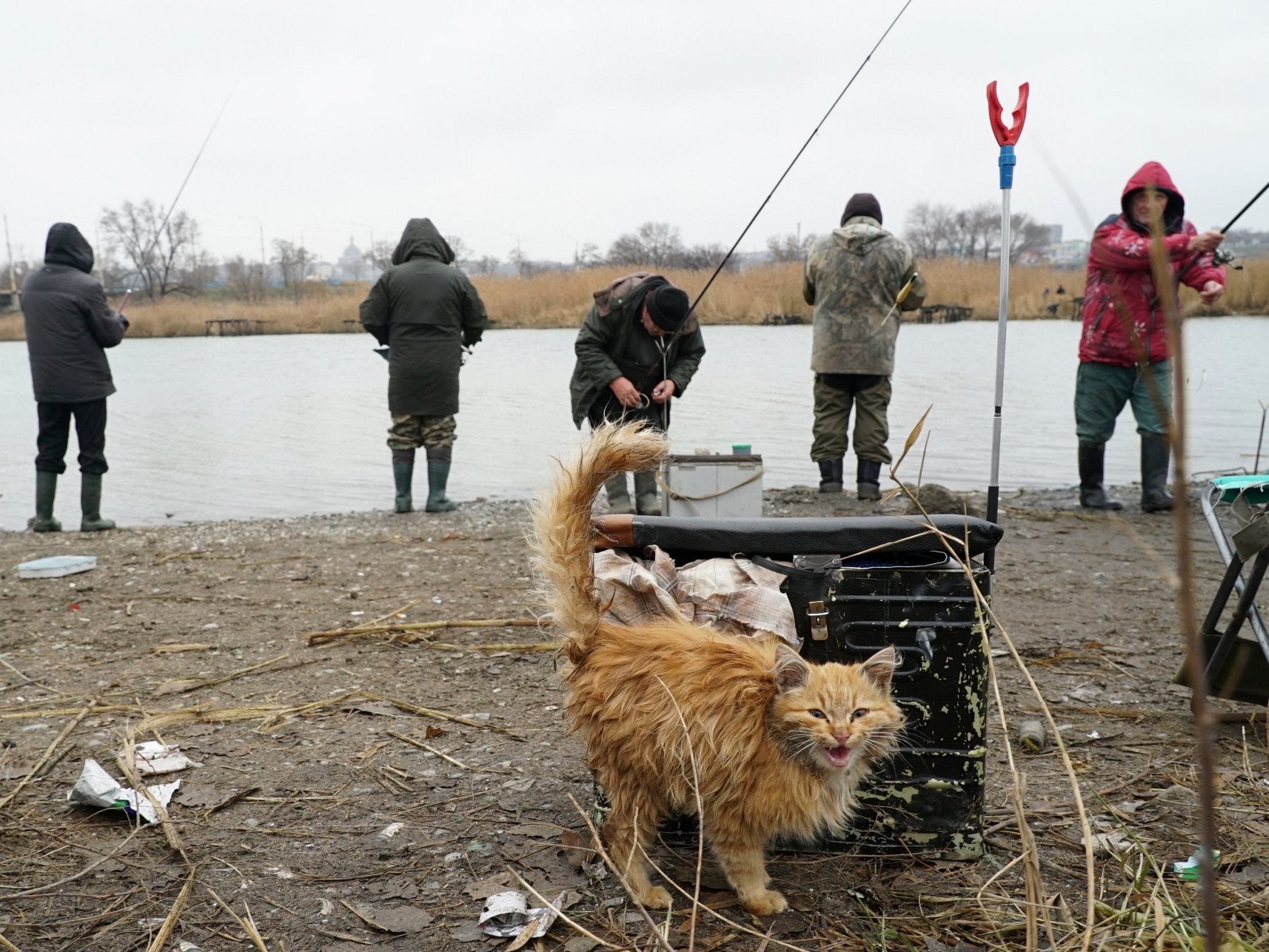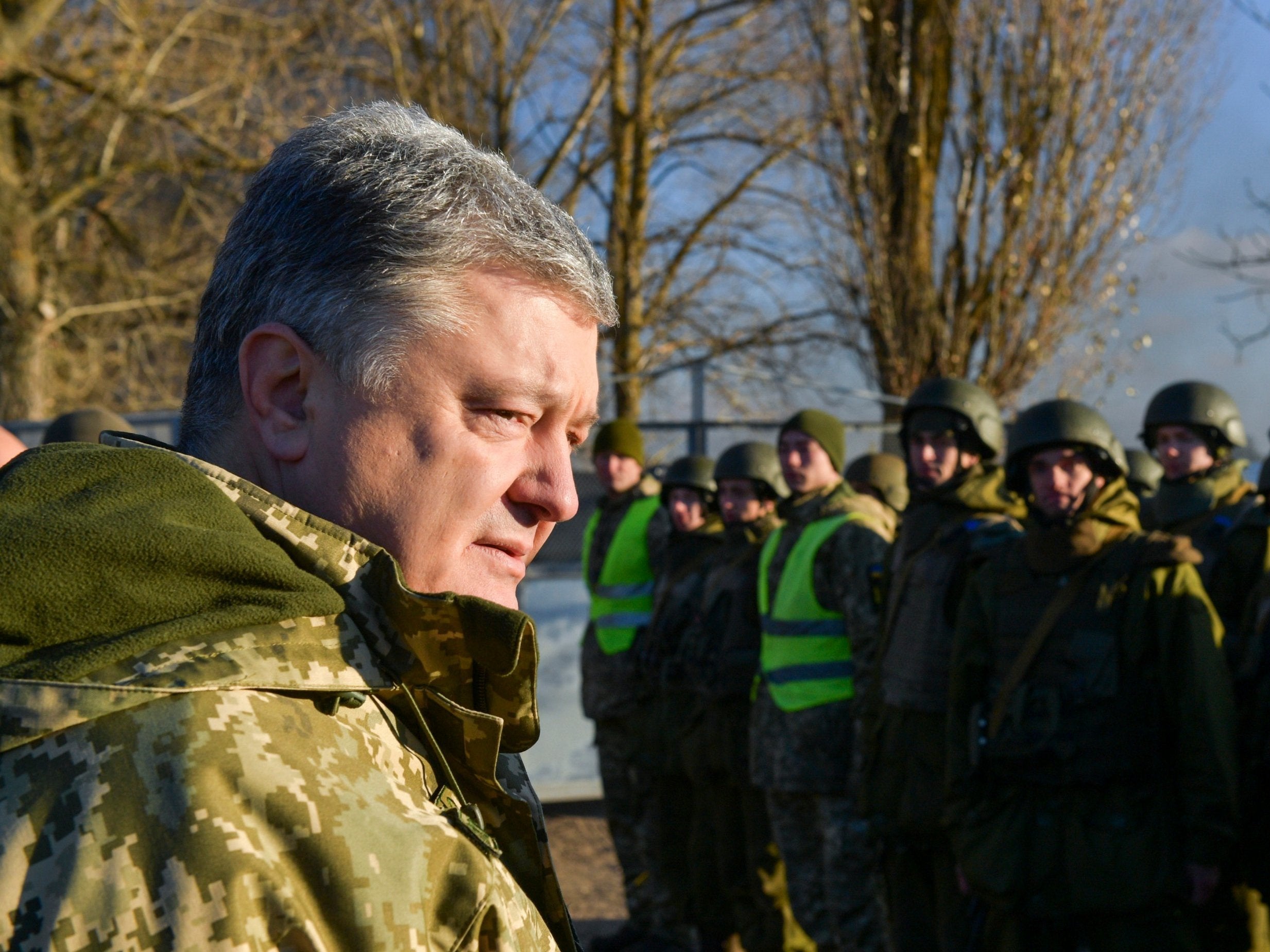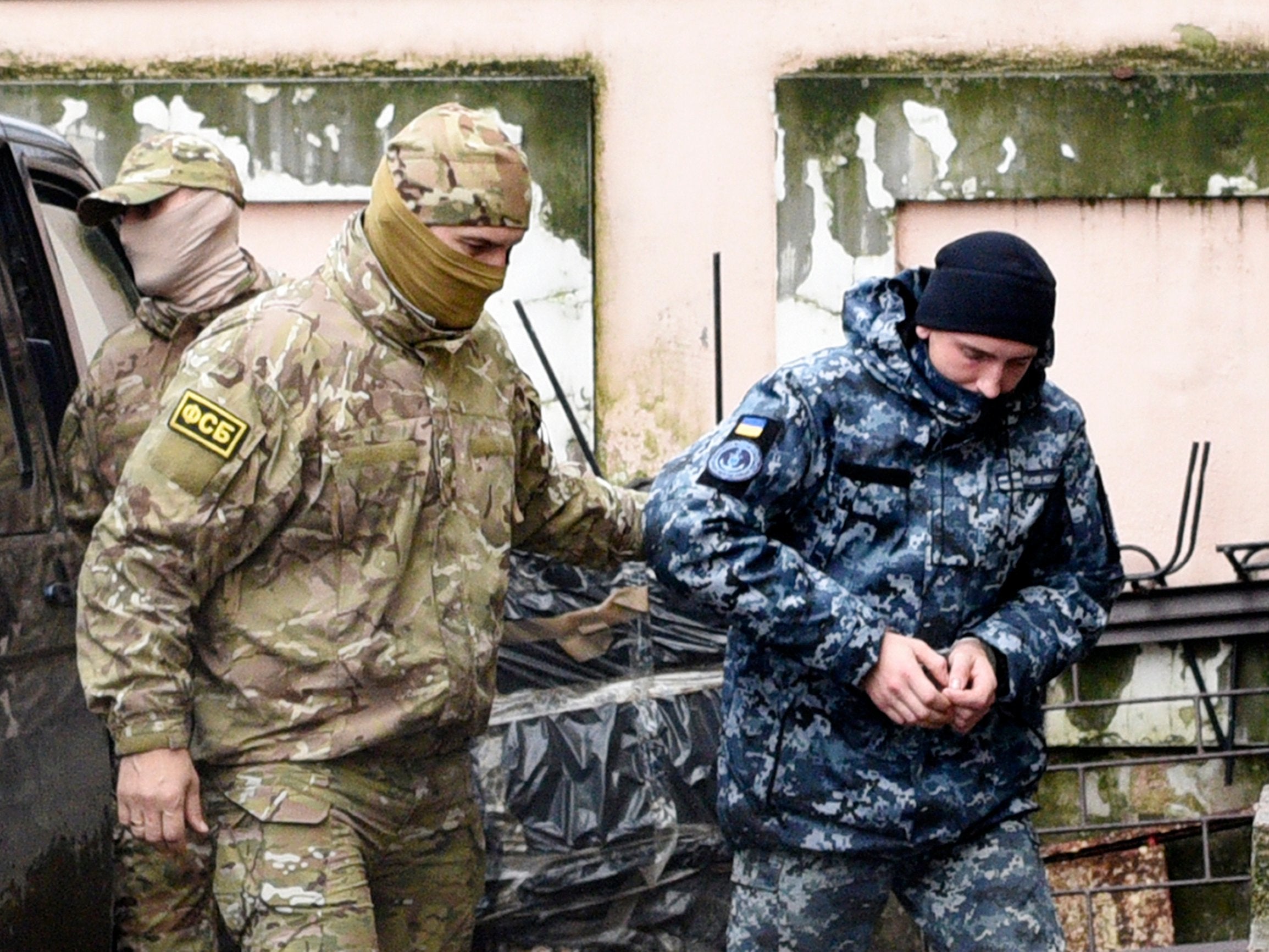‘Russia can do anything it wants’: Relatives of captured Ukrainian sailors say they feel abandoned
Family members lament lack of response and support from Kiev government

Eighteen-year-old Andriy Eider, the youngest of the Ukrainian sailors seized by Russia on Sunday, had been serving for a little over three months when his father saw the news flash on television.
Dmytro Eider says he felt fear but no regret about encouraging his son to join the navy. He always pushed his four children to find their own way in life. Yes, he had hoped Andriy, his eldest, would take over the family business, restoring historical weapons, but he realised it was a pointless ask. Like many boys in Odessa, Andriy dreamed of becoming a sailor.
“Everyone makes their choice. Some choose politics. Some choose the army. Some become bandits. You can’t change people’s minds,” Dmytro tells The Independent.
When the offer of a military contract for his son came, Dmytro used his connections to secure a place for Andriy on the Berdyansk, a small gunboat said to have the “best crew in town”.
On Wednesday, a Crimean court finished sentencing Andriy and 23 other members of the seized crews. All received identical sentences of two months pre-trial detention.
For Roman Mokryak, the young commander in charge of the Berdyansk, it marked the completion of a bittersweet circle. For five years, Mokyrak had been based out of Crimea, serving as senior officer on the Zaporizhzhia submarine until the Russian annexation in 2014.
Mokryak was one of just 29 of the submarine’s 101 crew to refuse to switch allegiance to Russia.
The sailor was offered everything to make the switch, says his former senior officer Artem Kisilev: a promotion, extra money, a better flat. But the “stubborn” and “ambitious” Mokryak refused, and transferred to Odessa, the new base for Ukraine’s much-reduced Black Sea fleet.
In the intervening years, his country seemed to offer him very little for his duty. Captain Mokryak was so broke he couldn’t even afford a room in a hostel on land.
“You could say he was arrested and seized from his living room,” says Kisilev. “In fact, all of them were.”
The Berdyansk was the most damaged of the three Ukrainian ships that came under Russian fire. Pictures of a large missile-sized crater in the ship’s bridge seem to suggest serious and dangerous combat. Three members of its crew were injured in the skirmishes, with 18-year-old Eider among the most serious. He underwent an operation on Sunday.

The picture of what happened on Sunday remains incomplete.
What we know is that the three-boat flotilla set sail from Odessa towards Mariupol, with the intention of traversing through the Kerch Strait. It was not a new route. Ukraine had already transferred several of its boats to ports in the Azov Sea before, most recently only a month ago.
At Kerch, the flotilla’s progress was blocked by Russian border patrol vessels. As the flotilla attempted to cross into the Azov Sea, the smallest boat was rammed. Later, apparently as the flotilla attempted to return to Odessa, it was attacked in the sea and by air.
We know little about what happened in the hours the Ukrainian crews waited for clearance from Russian authorities at Kerch. For example: Were there any provocative actions by the Ukrainian crews? When they appeared in court this week, the Ukrainian sailors insisted not.
Another unanswered question is why, after forcing the Ukrainian flotilla to wait for several hours, Russian forces then decided to track back and attack the retreating Ukrainian boats?
Both the Azov Sea and Kerch Strait are governed by a 2003 agreement allowing joint-use by both Ukraine and Russia. But its provisions date from a time before the Euromaidan revolution and Russia’s annexation of Crimea.
The Kremlin seems to be making an argument that, having assumed Crimea, it considers the Kerch Strait to be exclusive Russian waters. Most maritime experts dispute this interpretation of the 2003 treaty. But Russia has two key arguments in its favour. First, a massive naval superiority in the area. Second, the fact the international community is highly unlikely to interfere in a dispute over shared Ukrainian/Russian waters.
The crews that set off to Mariupol last week will have understood they would not have been welcomed with open arms in Kerch, admits Kisilev. Moreover, they would have imagined there “might be trouble,” even if not quite as bad as turned out; there would have been given “scenarios and protocols to follow”.

Another established moment is that Ukraine had not received permission to cross the Kerch Strait as it had done on previous trips. Kiev insists it didn’t need to, and that under the 2003 treaty, only needed to inform of its intention to travel.
Two active servicemen, who asked to remain anonymous, also told The Independent there had been unease among sailors who had taken the mission before.
Another picture seems to be emerging: the Kiev government prioritising political rhetoric over the immediate wellbeing of the servicemen and their families. The Ukrainian Ministry of Defence has set up a hotline for the families, but several family members complained it didn’t have anything new to say. Some have taken to social media to write desperate open messages to Russian journalists to try to find out more about the sailors’ wellbeing.
“I don’t know if my son has been beaten or not,” says Mikhaylo Melnychuk, father of Oleh Melnychuk, commander of the tugboat that was rammed by Russian border guards.
“You understand Russia can do anything it wants. We are helpless, and until there is political regulation, there isn’t a lot anyone can do.”
“Of course,” he says, before pausing. “We’d like the state to take a more active role in all of this.”
Oleh Melnychuk stood out in the Crimean courtroom for insisting on a Ukrainian translator – an apparent act of defiance that has been gleefully reported in Ukrainian media.
The Melnychuks’ lawyer, Edem Semedlyayev, said Kiev has made no effort to arrange lawyers for the captured servicemen. That was left to Ukrainian NGOs and the families. The call for help was taken up by a group of independent lawyers, he said, who are now working pro bono with 15 of the sailors’ families.
We understand this is not entirely a fair legal game, but a political process played out at the top level
The lawyers’ main focus was to ensure the men were being kept well, Semedlyayev says.
“We understand this is not entirely a fair legal game, but a political process played out at the top level.”
Not all the Ukrainian sailors have been allowed proper legal representation. Russia continues to deny access to lawyers acting for Vasyl Soroka, one of the two Ukrainian Security Service officers who was travelling in the flotilla.
Soroka’s father, Viktor, says he is “very worried” about the wellbeing of his son. He had been injured in the clashes, but there was little information about the conditions of his detention, or whether he had been tortured.
“Vasyl is a prisoner of war, captured in direct conflict, that is obvious,” he says. “Unfortunately, Russia is a country full of monkeys who couldn’t give a damn about international rules.”
The family of Andriy Eider say they understood it may be a long time before they see their son again. But in the meantime, they would not allow themselves “any emotions, except immense pride” for their son.
“I’ve just recovered from a heart attack, so nerves are not the way to go,” his father says.
Lawyer Semedlyayev, a Crimean Tatar, said the crisis could prove to be a turning point for the region, and for Crimea in particular. Much now depends, on how the Ukrainian government handles itself diplomatically. Five years after the start of conflict, Ukraine “should have developed mechanisms for applying pressure and saving their people,” he says.
In the meantime, the sailors would remain “pawns” in a political showdown between Russia and Ukraine.
“But the thing to remember is that sometimes pawns can decide the outcomes of the biggest games,” he adds.
Join our commenting forum
Join thought-provoking conversations, follow other Independent readers and see their replies
Comments